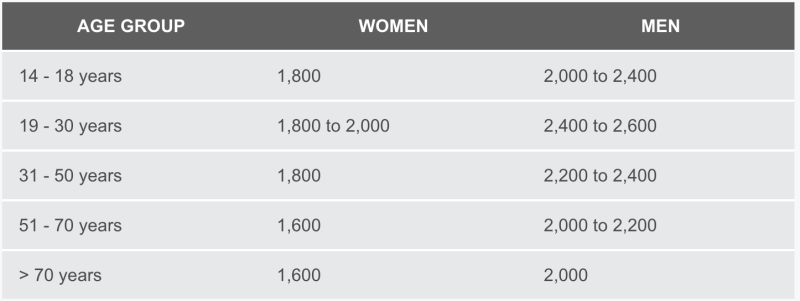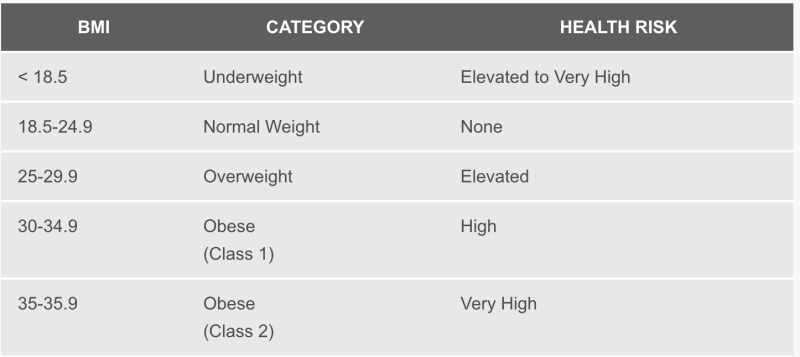#均衡饮食
#系列课程
什么决定了你每天应该吃多少食物?
许多不同的因素决定了你每天需要多少食物。你的能量需求会根据你的年龄、性别、身高、体重和体力活动水平等因素而有所不同。
食物为你的身体提供能量和重要的营养素,这些营养素是身体维持自身功能所必需的。选择优质的食物,可以为身体提供维持最佳功能所需的营养素和能量。不健康的食物选择虽然可以提供能量,但营养成分却很少,因此会导致日后的健康问题。
下表列出了体力活动量较低的人群的每日大致能量需求(以卡路里表示)。你的确切需求会因多种因素而异,尤其是你的体力活动水平。能量需求也会随着年龄的增长而变化,因此与年轻人相比,老年人维持健康所需的能量更少。
每日能量需求参考值

我如何知道自己的摄入量是否合理?
您的体重是衡量您摄入食物量的实用指标。一般来说,如果您的摄入量与您的身高、体重、年龄、活动量和性别相符,您的体重往往比较健康稳定。
摄入适量的食物对于保持健康体重至关重要,因为多余的能量会以脂肪的形式储存在体内。过多的体脂——尤其是在腹部附近——是导致健康状况不佳和慢性疾病的主要风险因素,因此合理控制能量摄入至关重要。
如果食物摄入过少,可能意味着您摄入的重要维生素和矿物质不足。这会增加营养不良的风险。
注册营养师等专家可以帮助您计算出维持健康体重所需的每种食物类别的确切摄入量。然而,这并不复杂。如果您在每个食物类别中做出最佳选择并避免暴饮暴食,您将能够更好地控制体重并改善整体健康状况。
下表列出了不同类别的体重指数 (BMI)。BMI 是一种用于确定您是否处于健康体重的临床指标。访问此页面上的“提示”部分,了解如何计算您的 BMI。
体质指数分类

本周重点信息
本周课程提供了卡路里摄入量和BMI的一般指导。请记住,您的体重、身高、年龄、性别和体力活动水平都会影响您每天需要摄入多少卡路里。
通过在每个食物类别中选择最佳食物,避免暴饮暴食,您可以保持健康的体重,促进健康并预防疾病。
What determines how much food you should eat each day?
Many different factors determine how much food you will need each day. You will have unique energy requirements based on factors such as your age, gender, height, weight and physical activity levels.
Food provides your body with energy and important nutrients, which your body needs to maintain itself. By making good quality food choices, you can fuel your body with the nutrients and energy it needs to function optimally. Poor food choices may provide energy, but very little nutrients and therefore contribute to health problems down the road.
The table below outlines approximate daily energy requirements (expressed as calories) for individuals with low daily levels of physical activity. Your exact requirements will vary based on a number of factors, especially your level of physical activity. Energy requirements also change as you age, so older individuals need less energy to sustain good health compared to younger people.
Daily reference for estimated energy requirements

How do I know if I am eating the right amount of food?
Your body weight is a good practical gauge of the amount of food you are eating. In general, if you are eating the correct amount of food for your height, weight, age, activity level and gender, you will find that your body weight tends to be both healthy and stable.
Eating just the right amount of food to maintain a healthy weight is very important, because excess energy is stored in the body as fat. Too much body fat - especially around your mid-section - is a major risk factor for poor health and chronic disease, so it is important to get your energy intake right.
If you take in too little food, it might mean you are not consuming enough important vitamins and minerals. This is associated with an increased risk of developing malnutrition.
An expert, such as a registered dietitian, can help you work out the exact amount of food you need from each food group to maintain a healthy weight. However, this does not need to be a complicated affair. If you make the best food choices within each food group and avoid overeating, you will be able to better control your weight and improve your overall health.
The table below illustrates the different categories of body mass index (BMI). BMI is a clinical measure used to determine if you are at a healthy body weight. Visit the “Tips” section on this page to learn how to calculate your BMI.
Body Mass Index Categories

Key messages for this week
This week’s lesson provided general guidelines for calorie intake and BMI. Remember that your weight, height, age, gender and physical activity level all play a role in determining how many calories you need to consume each day.
By making the best food choices within each food group and not overeating, you can maintain a healthy weight, promote health and prevent disease.